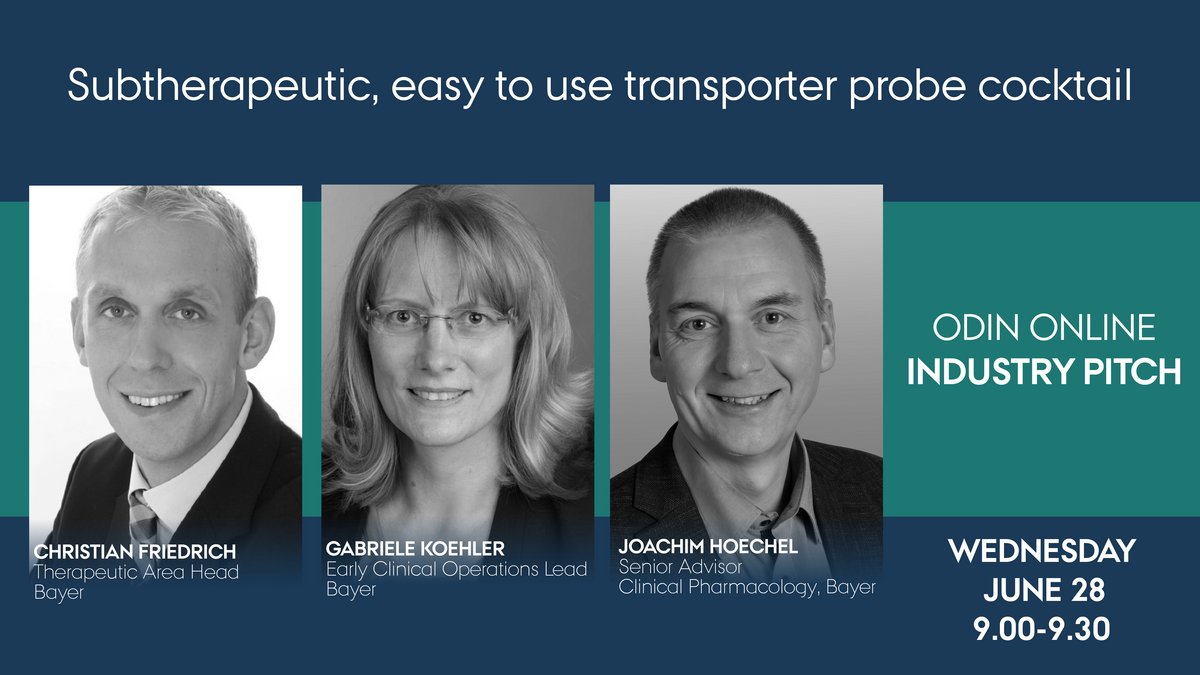ODIN online industry pitch | BAYER
Drug-drug interaction studies investigating the effect of new drugs on other marketed drugs are required by regulatory agencies. Bayer suggest to validate a subtherapeutic dose cocktail in a clinical Phase I study as explained in this pitch
Info about event
Time
Location
online
Organizer
Subtherapeutic, easy-to-use transporter probe cocktail
Drug-drug interaction studies investigating the effect of new drugs on other marketed drugs are required by regulatory authorities if preclinical data indicate a risk for such a drug interaction. This characterization is important to avoid potential over- or underdosing of patients receiving relevant comedications, which would lead to either loosing efficacy or an increased safety risk. Sometimes, different marketed probe drugs with an interaction potential are combined into a cocktail to characterize several interactions within one study (Wiebe Clin. Pharmacokinetics 2020).
Typically, those drug interaction studies are conducted as stand-alone studies once the safety profile of the new drug has been confirmed in clinical studies. A direct implementation at therapeutic doses in the initial clinical safety studies is not possible since there might be additive or even synergistic safety risks associated with the combination. However, an integration in the initial safety studies is desired as this would avoid stand-alone studies and thus leading to a lower number of healthy volunteers being exposed, an overall reduced ecological footprint and substantial budget savings during drug development. A solution to overcome this hurdle is to perform a drug-interaction-study using a micro-dose cocktail of the marketed probe drugs, which are not pharmacological active and thus do not pose an additional safety risk if co-administered in the initial safety studies. Such a microdose cocktail was validated by Prueksaritanont et. al (Clin Pharmacol Therp 2017). However, the substantial downside of the microdose cocktail is the difficult preparation of the microdoses from GMP material which has prevented a standard implementation in development programs across industry.
The idea of this proposal is to validate a subtherapeutic dose cocktail in a clinical Phase I study that uses pharmacologically inactive doses at a strength that can still be easily prepared from already marketed formulations, e.g. pediatric formulations. The work on formulation selection has been already completed. Once the cocktail is validated in a phase I study and published it could be used for all subsequent development programs across the industry and could help to mitigate the need for separate drug interaction studies with the above described impact in terms of ecological footprint, budget and prevention of unnecessary exposure of healthy volunteers.
